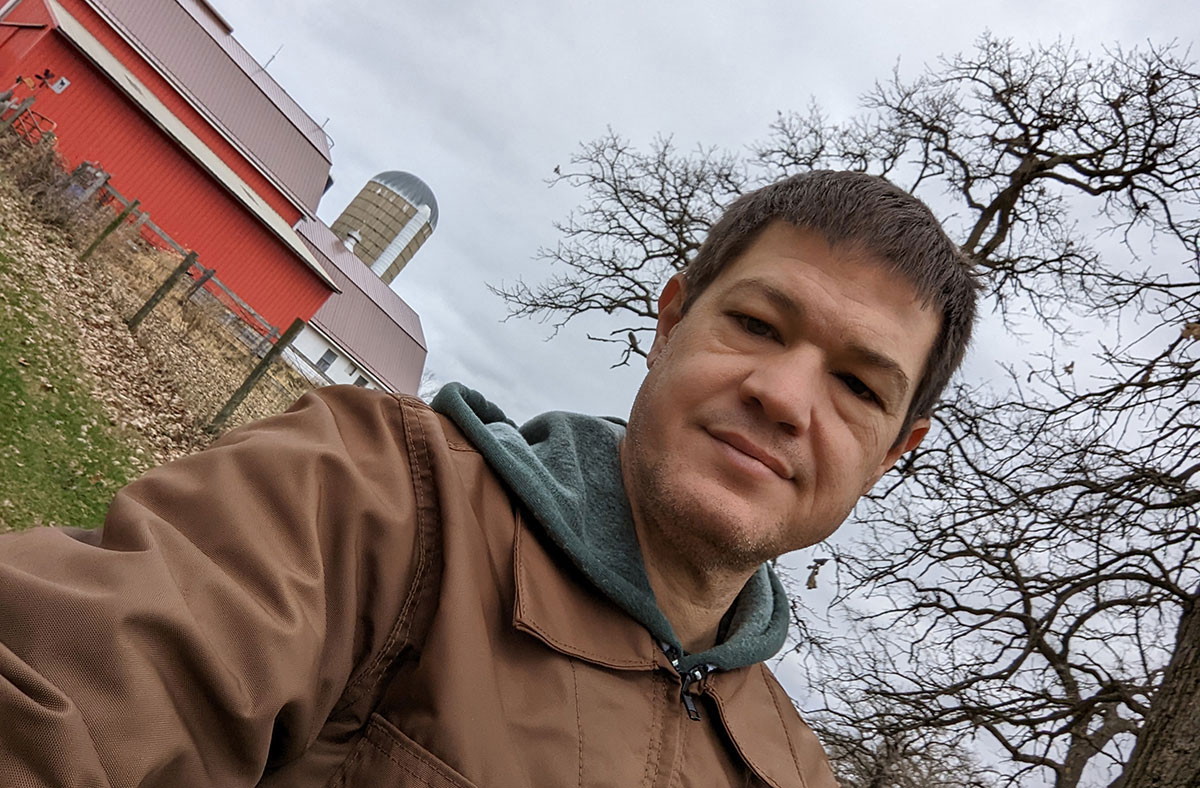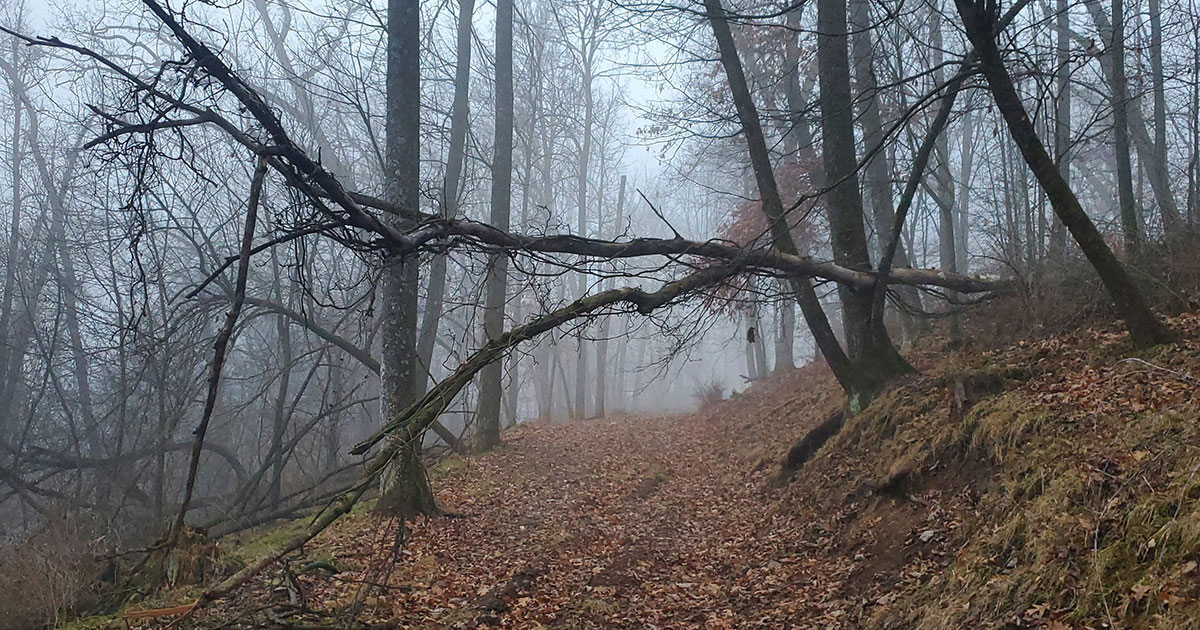
I heard that you once worked for NASA. Were you an astronaut?
I wish. I really wanted to be an astronaut when I was younger, and I interned in the John Glenn Research Center Airplane Icing Division when I was in high school. My job was to review and edit CAD drawings of how ice forms on airplane wings at various speeds, altitudes, and droplet size. Pretty neat gig for a 17-year-old.
Can you tell me about your path to law school and your first few years out?
It was pretty rough. I had never seen a law firm operate and I didn’t know what I was doing or how law firm economics worked. Before law school, I worked as a software developer in house at Fortune 500 companies, so I could wear t-shirts and spend as much time as I wanted on projects and people praised my dedication instead of yelling at me for running up bills. Those first law firm jobs were not a good culture fit.
Many people in Wisconsin know you as “beer lawyer Jeff.” How did you go from “technology lawyer Jeff” to “beer lawyer Jeff,” and did that evolve into something else?
Quick Facts
Most recent position: Clinical Professor, U.W. Law & Entrepreneurship Clinic. Jeff is also a partner at Ogden Glazer + Schaeffer.
Law School: Chicago-Kent
College of Law, Illinois Institute
of Technology, 2004
Contact info: U.W. Law & Entrepreneurship Clinic,
975 Bascom Mall, Madison, WI 53706; jmglazer@wisc.edu
Photos: By Jeff Glazer, at his farm.
I moved to Madison just as the market was crashing in 2007-08. I didn’t have any connections here and had a hard time finding a job doing technology law. So, I did what I knew – drank beer and wrote about it (the craft beer scene was just starting to explode). I hit the right wave at the right time; Wisconsin alcohol law was changing, and I was the only person writing about it. Breweries wanted to hire the guy who spoke their language and drank their beer.
In 2011, you started working with the U.W. Law & Entrepreneurship Clinic. Tell us about the clinic and how your experiences made that role a good fit for you.
In those early firms I did a fair bit of civil litigation and bankruptcy and receivership work. I enjoyed the work, and I think I was good at it. But one thing constantly gnawed at me: these problems could have been resolved and we wouldn’t be having this fight if these people had talked to each other at the beginning of the relationship. So, I tried to move my career to focusing as early in the business-formation process as I could, to help people have those discussions and think about the full life cycle of business.
How did your work in that clinic spur the creation of the Rural Entrepreneurship Program, and what is that program about?
The Law & Entrepreneurship Clinic used to run statistics about client demographics every year. As the resident data guy, it was my job to pull the data and put together the reports that our clinic director wanted to see. One year I ran numbers on Madison and Milwaukee versus “everywhere else” and noticed that the clinic was batting about state average. I thought average wasn’t good enough for a clinic that prided itself on serving traditionally underserved people (our numbers of women-led businesses and businesses of color were – and are – way above state average). This was about the time that the State Bar of Wisconsin’s survey of legal practice came out showing that there was a huge gap forming in access to legal services in our rural communities. I thought the clinic should be doing more and that this would be an appropriate problem to tackle for both clients and future lawyers.

The Back 40: Jeff Glazer’s property includes 40 acres of mostly wooded, undeveloped land. A creek runs through a
bottom between two wooded hills.
The Wisconsin Solo & Small Firm Conference has held sessions on rural practice and how to get more attorneys into rural areas. I remember hearing pushback to the use of technology as a bridge to rural communities, whose residents prefer legal representation by lawyers who live in those communities. Is there a balance that can be struck?
I love this quote from Indian author Amish Tripathi: “One cannot undo what has happened. But the inexorable march of time offers the wise opportunities for redemption. I entreat you, do not escape. Stay in this world and do your karma.” The march of technology is inexorable and inescapable; it will be both our undoing and our salvation. Embrace it because there is no other choice.
Stated less obliquely: you can have your cake and eat it too. Rural lawyers can embrace technology to bring legal services closer to their communities and provide those services more efficiently. Rural practice and technology are not mutually exclusive.
What do you fear will happen if we don’t find solutions to the shortage of lawyers in rural areas?
Clients want lawyers who understand their needs. This is often a person in the community who understands the community. Our robot overlords (for example, ChatGPT and other types of AI) don’t “understand” anything; they simply write words on a screen when prompted based on the thousands of contacts that they have chewed up, swallowed, and passed through their system.
Our role as a lawyer is as a counselor. I’m hopeful that technology will make this even more apparent and that clients will appreciate the value that lawyers provide as counselors instead of lowest-cost document-delivery (or argument-delivery) vehicles. If we lose our rural lawyers, our rural clients will have no choice but to succumb to the robot overlords.
As part of the Rural Entrepreneurship Program, we went to Rhinelander and I spoke with Nick Cirilli of Cirilli Law Offices. Nick’s firm is typical of rural firms: four lawyers, all related to each other. Nick is the only one under age 40. In fact, by his count, in the nine-county region of northeastern Wisconsin there are fewer than 20 lawyers under the age of 40 and fewer than 100 lawyers total – and this includes judges, prosecutors, and retired lawyers with active State Bar membership status. This is what happens when we ignore the problem.
Who needs to be a part of the solution?
It’s easy to blame the State Bar for not having rural tuition remission like other states do, the law schools for optimizing for big law and not connecting with rural law firms or encouraging rural practice, urban law firms for using fancy technology to poach clients, and politicians for gutting financial aid and education in rural areas.
But I think our answer is right in front of us. When I ask students at the law school who want to practice in rural communities why, they tell me the simple answer: they want to help their community.
We should all be working together to support and encourage community service among our future lawyers. Encourage high school students to intern at law firms. (Shout out to Carter Rickard, a student from Iowa-Grant High School who has been interning with Ogden Glazer + Schaefer for the past year! He’s killing it and excited to go to law school and enter politics after college.) Offer scholarships to students from your community who will agree to come back and work for you. Offer tuition remission for law students who practice in rural communities for more than seven years. I know it’s expensive, but it’s not as expensive as gutting access to justice.
Listen for the students and young lawyers telling you what they want. If you listen, they will tell you. I know because I have students from the Rural Entrepreneurship Program who are now practicing in rural communities because I said, “If you’re interested in rural practice come here and we’ll give you as much support as we can. We’ll take you out into the community and show you what community engagement looks like. We’ll introduce you to lawyers, entrepreneurs, and business leaders.” And now they’re back in their own communities building careers and preaching the gospel of engagement.
At NASA, you studied how to de-ice airplanes. Is that any different than studying how to address rural attorney shortages?
There are a lot of similarities. I started out in a field I knew nothing about but had a passion for learning. I experimented, failed, tweaked, and tried again. And I still do that. I bumble around the state listening, learning, experimenting, failing, tweaking, and trying again.
I’ve been lucky enough to meet a lot of great partners along the way, and together we’re trying to build our communities through entrepreneurship, education, and support.
What’s your favorite rural beer?
The one I drink while standing in the creek in the back 40 at my farm splashing and throwing rocks with my kids.
» Cite this article: 96 Wis. Law. 10-12 (October 2023).
